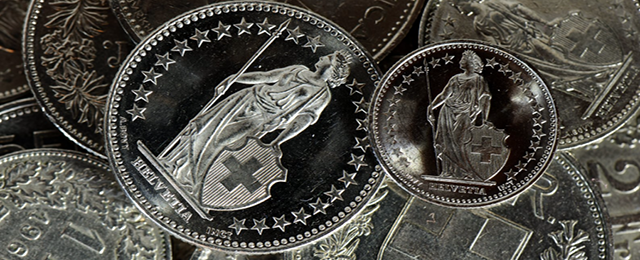“This exceptional and temporary measure protected the Swiss economy from serious harm,” the central bank said in a statement. “While the Swiss franc is still high, the overvaluation has decreased as a whole since the introduction of the minimum exchange rate. The economy was able to take advantage of this phase to adjust to the new situation.”
What about Swiss companies? They had been divided over he SNB’s support for the euro. Exporters were benefitting from the situation and others were against the massive growth of the central lender’s balance sheet (the SNB was holding down the franc by selling it on the open market in exchange for euros, pushing down the franc and supporting the euro).
Now luxury watches manufacturers, for example, will certainly suffer, and generally speaking a stronger CHF will lead to downgrades of EPS expressed in CHF for the globally oriented Swiss companies.
“USD block makes ca. 60% of the EPS, the EUR ca. 40%. The USD is back to where it traded 6 months ago. The extent of the downgrade will depend on the new level exchange rates prevalent in the next quarters. We see today’s negative stock market reaction of ca. 12% as fair, assuming currencies settle around the current levels and companies will react to the new situation,” UBP’s Martin Moeller explains.
“The SNB has been one of the largest buyers of Euros, investing mainly in Eurodenominated bonds. The European Central Bank’s expansive monetary policy was making this policy increasingly difficult to sustain, creating huge pricing risks for Switzerland’s currency reserves,” says Dirk Aufderheide, Chief Currency Strategist Active at Deutsche Asset & Wealth Management.
For Aufderheide, the SNB could have taken a less disruptive path, such as pegging the SFR to a basket of currencies.
“This radical ending of its policy is really counterproductive for the ECB. But it is liberating for the SNB, which can now focus on its monetary policy mandate and on macroeconomics. The key question is: what does this mean for the real economy? Combined with the significant drop in oil prices, the flash-crash-appreciation of the Swiss Franc increases deflation risk. Swiss companies have lost competitiveness. “Some investors could be caught out. It is risky to base an investment strategy on assumptions about central bank policy. After today, more investors will be wondering how trustworthy central banks are.”






Be the first to comment on "SNB: And this is only the beginning"